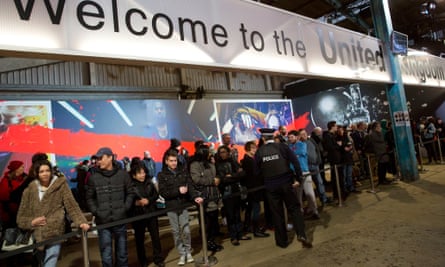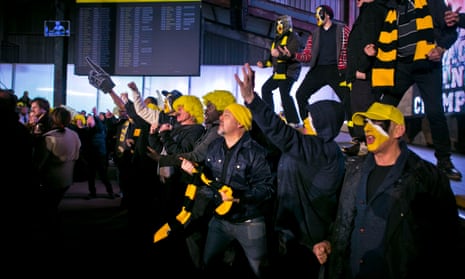When Michael Tippett’s fourth opera was first performed, at Covent Garden in 1977, his popularity as a composer was at its peak. The eclectic mix of his music and the freewheeling liberalism of his ideas struck a chord with audiences on both sides of the Atlantic in the 1970s, who were happy to forgive any shortcomings and self-conscious colloquialisms in his texts.
Though it was received respectfully enough at its premiere, time hasn’t been kind to The Ice Break. The Royal Opera revived its staging once, and there was a concert performance in London in 1990, at the time of the commercial recording. Otherwise, the opera has not been seen or heard in the UK again until now; even by the adventurous standards that Graham Vick and his Birmingham Opera Company have set for themselves, it is a bold choice for their latest production – by and large a justified one.
There’s not much that Vick can do to disguise the weakness of the plot. It revolves around Lev (sung by Andrew Slater), a political activist returning to his wife, Nadia (Nadine Benjamin), and son, Yuri (Ross Ramgobin), after 20 years in a prison camp, who finds society torn apart by violence and racial tensions. Yuri and his girlfriend, Gayle (Stephanie Corley), are radicalised and regard Lev’s pacifist ideals as out of date, though after a race riot in which Yuri is seriously injured, father and son achieve a reconciliation of sorts.

There are other strands, too – the arrival of Olympion (Ta’u Pupu’a), a newly crowned boxing champion and symbol of black power, and the intervention of Astron (a double role, shared between Anna Harvey and Meili Li), an apparently extraterrestrial messenger who urges the crowd to cherish the Earth. But the whole opera only lasts 70 minutes, and Tippett packs too much in to explore any of the themes in any depth. The characters are two-dimensional, stereotypes rather than believable people, and the narrative comes across as a mish-mash of ideas with too many loose ends.
Designed by Stuart Nunn, Vick’s production sites the action in an airport-arrivals hall in the present day, complete with a huge LED screen and tannoy announcements. The audience becomes the thronging passengers, marshalled by semi-automatic-toting security guards around another of the cavernous spaces in the post-industrial nether regions of Birmingham that BOC seems to able discover so readily. There are some striking set pieces, especially the masked march of the warring factions leading up to the climactic riot, and a strange S&M, pill-popping interlude preceding Astron’s intervention; there are the sort of eruptive spectacles that Vick and his mix of professional and committed amateur performers present uniquely well. But in this acoustic, words are constantly problematic, and not enough of them come across in the crucial arias of self-awareness from Lev, Nadia and the nurse Hannah (Chrystal E Williams) on which the whole drama depends.
What survives magnificently, though is Tippett’s orchestral music, which comes across strikingly in the performance by the City of Birmingham Symphony under Andrew Gourlay. The richness of the score, with its tang of electric guitars, so typical of Tippett’s soundworld in the 1970s, its riffs of percussion, insidious ripples of woodwind, and dark, churning string harmonies is a constant delight. The production may not rehabilitate The Ice Break as a viable stage work, but it does at least provide a potent reminder of how rewarding and potent Tippett’s late orchestral music can be.

Comments (…)
Sign in or create your Guardian account to join the discussion